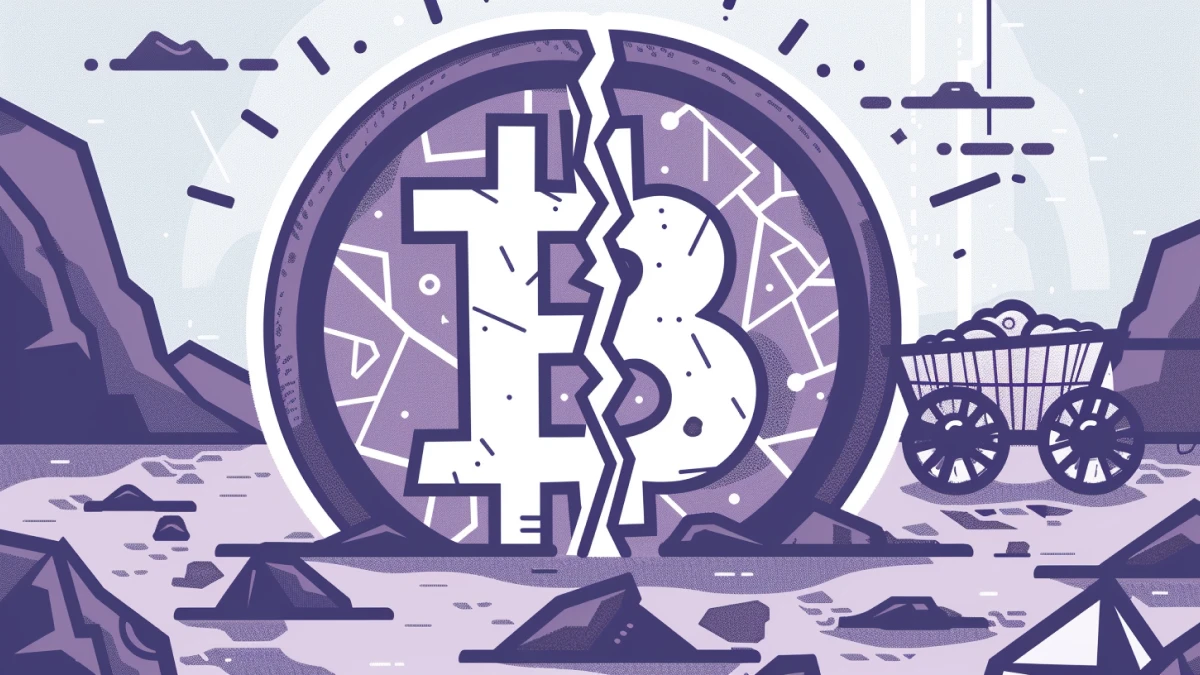What Is Bitcoin
Bitcoin is a trustless, peer-to-peer digital currency regulated by the Bitcoin network. The groundbreaking innovation of Bitcoin is its ability to enable payments without a central authority, and solve the double-spend problem. Doing so requires a large amount of energy, leading critics to claim Bitcoin is unsustainable or wasteful.
Bitcoin and Proof-of-Work
Bitcoin’s Proof-of-Work algorithm requires computers to use significant computational power to mine new blocks and confirm transactions. In return for the electrical energy and time dedicated to mining a new block, miners receive the block reward, which currently includes 6.25 new bitcoin and the transaction fees of all the transactions included in the block.
➤ Learn more about Bitcoin transactions.
Once a block has been added to the blockchain, any change to a transaction included in that block requires redoing the Proof-of-Work for all blocks preceding it. Proof-of-Work is intentionally structured to be extremely costly to discourage fraudulent transactions and maintain consensus. This is what makes Bitcoin so reliable and secure despite its lack of central authority.
– Satoshi Nakamoto explaining Proof-of-Work in the Bitcoin whitepaper
Bitcoin’s Electricity Usage
The Bitcoin Network is composed of thousands of miners located across the globe. Mining blocks and the Proof-of-Work consensus algorithm require significant electrical energy. A study estimates that the Bitcoin network could grow to consume as much as 7.67 gigawatts of electricity, comparable to some countries’ entire electrical consumption.
While the energy consumption of Bitcoin is significant, it is entirely necessary. Bitcoin has value because it costs something to produce. The electrical “work” required to produce it gives it value to miners and consumers. Bitcoin is the simplest transformation of energy into value.
– Dan Held, “Proof-of-Work Is Efficient”
Is Bitcoin Sustainable in the Long-Term?
Because electricity accounts for a large majority of the cost of mining new Bitcoin, miners gravitate towards countries where electricity sources are low-cost. Non-renewable energy sources are typically the most scalable, reliable, and low-cost source of electricity available, but a 2020 Study by the Cambridge Center for Alternative Finance estimates that 76% of Bitcoin are mined with renewable energy.
Bitcoin mining is highly competitive, and is typically only profitable for miners with access to energy with the cheapest marginal costs. Renewable energies like solar power have very low marginal cost, making it a common choice for Bitcoin mining operations. This causes the majority of the Bitcoin network to be powered by renewable energy with extremely low carbon emissions.
Bitcoin itself also creates a strong financial incentive to capture stranded, unusable energy from both renewable and non-renewable sources. Bitcoin mining makes energy fungible across time, an entirely unique feature of Bitcoin as an industry. This has the potential to eliminate inefficiencies. For example, solar energy is produced most during midday, precisely the time it is least needed. In some cases, the price of solar energy can fall below zero during midday, while energy remains expensive at other times of day. Bitcoin mining can provide efficiency by using cheap solar energy to mine during the day and shutting off at night.
Bitcoin mining is also fungible across space, giving it the potential to solve geographical inefficiencies. For example, oil and natural gas are often extracted at remote, undeveloped locations. Transporting this oil or gas to the more populated locations where they are needed is difficult. Pipelines are expensive and disruptive to populations and environments they traverse. Thus, natural gas is frequently flared—burnt on-site—rather than transported and put to use. This flaring is extremely damaging to the environment and has no economic value. Bitcoin can and does fix this by consuming the oil and natural gas on-site, which reduces the overall emissions by converting methane into CO2.
Resources that are physically mined such as gold and silver will also consume large amounts of energy. However, they lack the ability to capture stranded energy and do not rely heavily on renewable energy. Physical mining is detrimental to local environments beyond just the direct energy consumption. These mining projects can lead to erosion, deforestation, and soil contamination, among many other issues. Bitcoin’s mining process is purely digital, so it doesn’t impact local environments in this way.
While Bitcoin mining with non-renewable resources does carry a carbon footprint that cannot be ignored, the necessity of the Bitcoin network and digital currency cannot be ignored either. Bitcoin is the only trustless, digitally-native currency that has persisted and thrived in the face of interference and criticism from governments and companies. Bitcoin is also the only money with zero counterfeit currency in circulation. These unique traits are impossible to achieve without Bitcoin’s Proof-of-Work system.
Comparing the environmental cost of Bitcoin transactions to other payment system transactions, like Visa or Mastercard, negates the fact that they are fundamentally different; Bitcoin is a complete, self-sufficient and self-sustaining monetary system. Visa and Mastercard are simply transaction facilitators who rely on dozens of other parties to ensure finality.
Key Takeaways
- Bitcoin is a transformation of electrical energy into a store of value.
- The electrical and computational power used by the Proof-of-Work algorithm ensures immutability.
- The majority of mining activity uses renewable energy.


